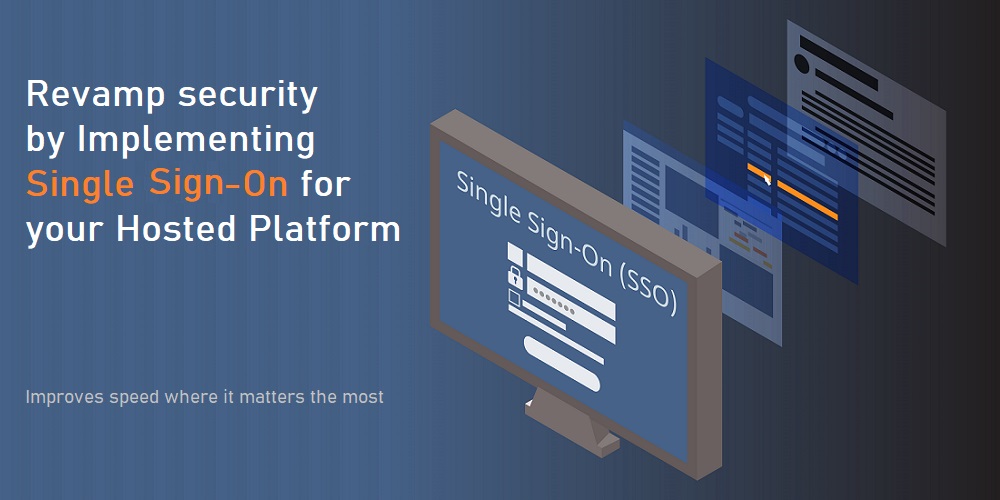Single Sign-On (SSO) is a method of access control that allows users to authenticate once and gain access to multiple applications or systems without being prompted to log in again. This makes it easier for users to access the resources they need, as they only need to remember one set of credentials.

Cloud hosting providers need SSO to provide their customers with a seamless and secure way to access their cloud-based applications and services. With SSO, customers can log in once and access multiple applications without having to remember multiple sets of credentials. This improves the user experience and reduces the risk of security breaches caused by weak or easily guessed passwords.
Additionally, SSO allows cloud hosting providers to easily manage and control access to their resources. They can set up different levels of access for different users and groups, and easily revoke access when necessary. This improves security and makes it easier for providers to comply with regulatory requirements.
In short, SSO is an essential tool for cloud hosting providers as it improves user experience and security and allows providers to manage access to their resources.
Different Framework for Single Sign-On (SSO):
There are several options available for implementing Single Sign-On (SSO). Some popular options include:
- Active Directory Federation Services (ADFS): This is a Microsoft technology that allows organizations to set up SSO for their users by linking their Active Directory (AD) with other systems and applications. ADFS can be used to set up SSO for cloud-based applications as well as on-premises systems.
- SAML (Security Assertion Markup Language): SAML is a standard for exchanging authentication and authorization data between systems. It allows organizations to set up SSO by creating a trust relationship between different systems and applications.
- OpenID Connect: This is an open standard for SSO that is built on top of OAuth 2.0. It allows users to authenticate with an identity provider (IdP) and then access multiple systems and applications without having to log in again.
- OAuth 2.0: OAuth is an open standard for authorization, it is commonly used to grant access to API’s and Services, but not for SSO.
- Google SSO, Microsoft SSO, Okta SSO: These are SSO solutions provided by the respective companies. They allow organizations to set up SSO for their users by linking their own identity provider (IdP) with other systems and applications.
- Social Identity Providers (Facebook, Google, etc): This is a way to allow users to use their existing Social media account to authenticate on your application.
It is important to note that each of these options have their own pros and cons and the best option will depend on the specific needs of your organization. Research and evaluate different SSO solutions to determine which one is the best fit for your organization.
Choosing the right SSO Solution, Factors to consider:
Some Key factors to consider when evaluating SSO solutions include:
- Compatibility with your existing systems and applications
- Level of security provided
- Ease of use for both administrators and end users
- Scalability
- Cost
- Support
- Integration with other security tools and solutions like MFA, IdP, etc.
MachPanel & Single Sign-On:
MachPanel is a cloud-based hosting management software that provides a variety of features including automation, provisioning, billing, and customer management. Regarding SSO, MachPanel offers an SSO feature that allows customers to access all their services with a single set of credentials. They offer SSO via SAML and OpenID Connect, which are widely used protocols for SSO.
It’s worth mentioning that MachPanel also offers integration with SSO providers like Microsoft ADFS, Azure AD, and KeyClock etc. This gives more flexibility to the customers to choose the solution that fits the best with their infrastructure and requirements.

